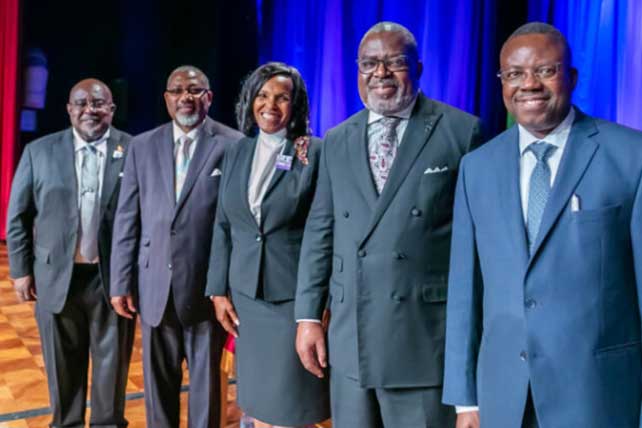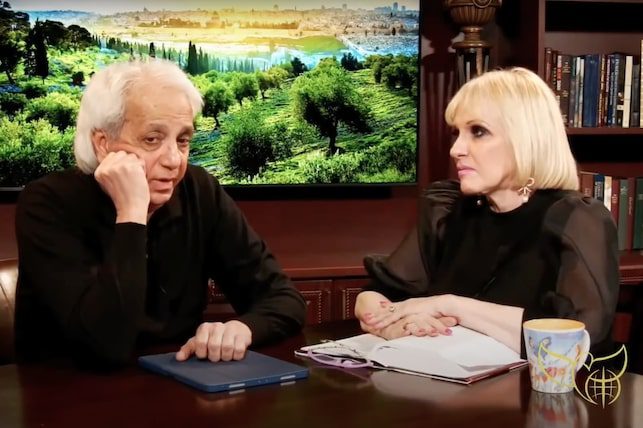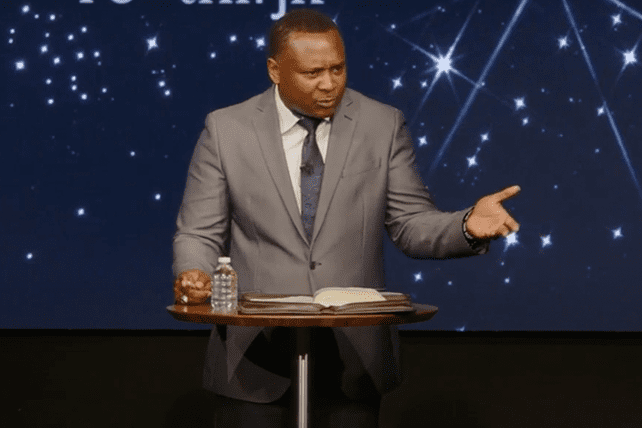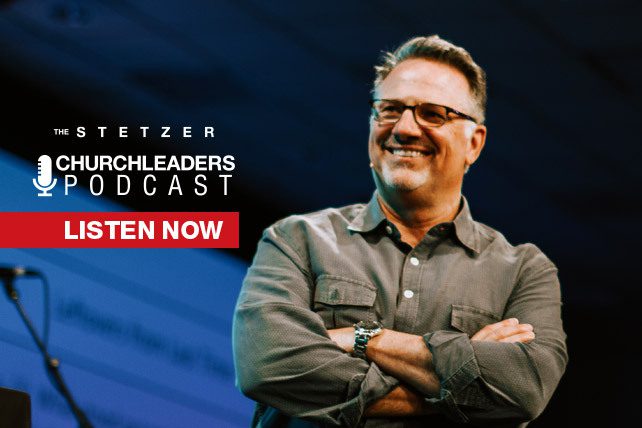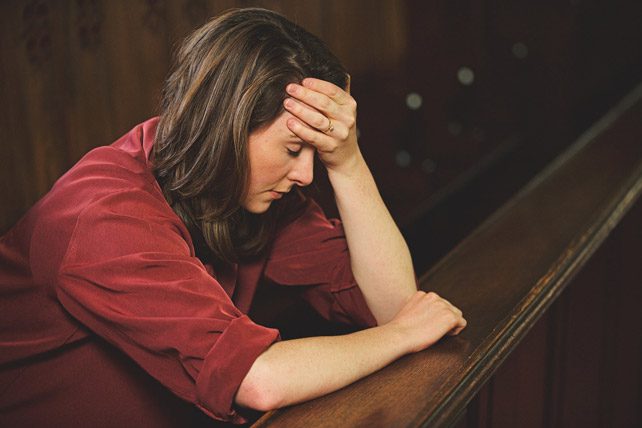Tod Bolsinger on The Stetzer ChurchLeaders Podcast.mp3: this mp3 audio file was automatically transcribed by Sonix with the best speech-to-text algorithms. This transcript may contain errors.
Voice Over:
Welcome to the Stetzer Church Leaders Podcast, conversations with today’s top ministry leaders to help you lead better every day. And now, here are your hosts, Ed Stetzer and Daniel Yang.
Daniel Yang:
Welcome to the Stetzer Church Leaders Podcast, where we’re helping Christian leaders navigate and lead through the cultural issues of our day. My name is Daniel Yang, national director of Churches of Welcome at World Relief. And today we’re talking to Doctor Todd Bolsinger. Todd is the founder and principal at A.E. Sloan Leadership, the executive director of the Dupree Center Church Leadership Institute, and associate professor of leadership formation at Fuller Seminary. His new book is entitled How Not to Waste a Crisis. Quit trying harder. But first, let’s go to Ed Stetzer, editor in chief of Outreach magazine and the dean of the Talbot School of Theology.
Ed Stetzer:
Super love, the title of the book. So we’re going to jump in and talk about that. Love the book. Have, have. So I think we’re gonna have to explain the title a little bit because one thing doesn’t necessarily flow to the other, but that’s explained, of course, in the book as well. So, um, okay, so, you know, we all were very I mean, I guess in the, in God’s providence, that’s what those of us on the reform side say, or by the luck of the draw for those on the Arminian side, little joke. Don’t send me letters. Um, the you you know, you’re canoeing the mountains really was a great service to so many of us during Covid. And and it’s in some ways, you’re continuing this conversation with how not to waste a crisis. Quit trying harder. But you kind of unpack some of the fact that leaders are already facing things before Covid 19. So let’s talk about some of those. What challenges were they facing that then we leads to unpacking more in the book.
Tod Bolsinger:
Yeah. Thank you. I’d love to do so. So, you know, Canoeing the Mountains was written because the crisis that almost everybody that I knew, every pastor I knew was facing was this shift that was happening in the culture. Um, that took a generation or so, but it was beginning to happen where Christianity was moving out of the center of culture. So, in other words, the shift from Christendom to a post Christendom world that for those of us who study those things, what most people experience, that was, hey, it used to be that everybody went to church, you know, that that, um, that, you know, on Friendship Sunday, it was about finding the 3 or 4 people in your church who had been frustrated with their old church. You won’t go to work and you invite them to come, and they’d come to your church on this Sunday instead. Now we realize that massive shift that was beginning to happen within the West, which was Christianity, was more on the outskirts of society was shifting. That took a generation and that was really disruptive. And then Covid hit, and in one day everybody got disrupted. And what really happened in that moment is we realized there was an even deeper crisis that was revealed during Covid. I said Covid was an apocalyptic event. It revealed these underlying things that were there all along. And one of the big things that revealed was that we were not as Christian as we thought we were, and that most of what we had done for the last generation that had grown the church had not deepened Christians. And so when a crisis came, we really weren’t ready for it.
Ed Stetzer:
Yeah, it was a failure of discipleship. We found people were being far more discipled by other things, like their cable news choices. It was also, I mean, there were multiple levels. I kind of talk about the slow decline of Christianity in the West as like a slowly decaying orbit of a moon around a big planet, and then Covid was like the meteor that hit the moon. And in some ways it it it accelerated the change. In other ways it it redirected the change. So so here we find ourselves and, you know, and you’ve written this, it’s part of a series practicing change series as well. Um, and I think part of the challenge is, is people are sort of unsure because, you know, we’re still in an election year depending on what people listen to this, but will release this in the midst of the election year. And it just feels like the world’s on fire. And part of the challenge is, you know, again, canoeing the mountains, talked about, you know, this uncharted territory. But now it’s almost like perpetual crisis and people are unsure how to respond. And this is a big part of the theme of the book, embracing adaptability and a whole lot of other things. All right, you write this the secret that most leaders don’t want to say out loud is that a crisis can be energizing, which I will. My wife will tell me that I get energized in times of crisis. But also, you can’t live in that kind of frenetic crisis all the time. So what challenges emerge when leaders are energized by a crisis?
Daniel Yang:
Well, so.
Tod Bolsinger:
These four little books all are about the big mistakes that good leaders make when they’re leading change. And these are these. So these are these books are focused on leaders who have been faithful. They have people of character and they have been somewhat fruitful. They have had some successful ministries, and God’s blessed them and they feel good about that. And then they hit a crisis, and they can’t figure out why what they used to do isn’t working today. And one of the things that’s energizing about a crisis is it mobilizes people to want to act for a short period of time. So I always say, you know, on Friday the 13th, March 13th, 2020, every church I knew immediately went into high gear. Covid shut down sanctuaries, and every church I knew had a television ministry. They called it Facebook Live. It had a nephew holding an iPhone going, the Lord be with you. And their response was, is this on? And it’s true. And and everybody got going and everybody went. That was so exhilarating. We were being the church in the world for about three weeks. Yeah. I had people say to me, look, as long as we don’t have to cancel Easter, they thought it was six weeks away. This Covid thing wasn’t going to last longer. That months drag on. And and now we start, we realizing that we just dissipated all that energy. The mistake good leaders make is they think they can outwork every problem. They just try harder until they’re exhausted. And they have to learn that in a crisis, you have to stop trying harder and you have to retrain for the new terrain. And that’s the thing they have to work on.
Daniel Yang:
Yeah, yeah. Uh, Todd, unpack that because I think most leaders, you know, they’re trying to rise to the occasion, but then their default is just to go back to their training, go back to doing what they know to do what they’re good at doing. Why do leaders do that and what should they do instead?
Tod Bolsinger:
Yeah, Daniel, I often ask leaders when we’re coaching and consulting, I’ll say, okay, secretly, between you and me, what’s your leadership superpower? What’s the thing you know you’re good at, right? And they will tell me. They go, oh my gosh, if I wake up in the middle of the night, I can reorganize the entire church staff in about 15 minutes. I can reorg, I can or I can pull up a spreadsheet, I can create a strategic plan. You know, mine is talking. I can I can get a sermon series out of a joke, right? Like you give me you give me like one quote and I get three points in a poem before the end of the paragraph, right? What happens when what you’ve always done doesn’t work anymore? But what we tend to do is double down and just keep doing it. And so that becomes the mistake. And I said, every leader has in their head some little voice that says, don’t just stand there, do something. And what we teach people is don’t just do something. Stand there. Stand there for a moment. Pause and learn to see the shift before you solve the problem. What’s the deeper shift that has to be made? And that’s when you’re in the realm of adaptive leadership. It’s shifting wisely values, attitudes, and behaviors so you can solve the problem. And that takes some calm that most of us don’t have when we’re really working as hard as we can.
Ed Stetzer:
Yeah. No, I love that. And I again, I full disclosure, I’m like really passionate about this topic. I actually wrote a book during Covid with Josh Laxton, Crisis Leadership from a Christian perspective. And, um, the one of the things that crisis leaders is actually a group of four of them were writing a book, and none of them are big George W Bush fans. But they they talked about how when Andrew Card came up and whispered in President George W Bush’s ear about 911, America’s under attack. And it was very easy to say, why don’t you just jump up and do anything? But no, this was the stop moment. I got a and that’s actually given an example of people who wouldn’t have maybe liked him. I think the authors sort of say they didn’t to prove their point. But part of the challenge is it’s very hard to kind of step up or lift yourself out of the crisis or step out of it for the moment and, and again. Yet, you know, pivoting is key. Pivoting is is so key. So right now it’s been like an ongoing series of black swan events, right? We, we, we see, uh, Covid, a global economic collapse. We see the incredible rising polarization, uh, uh, all these things going on, attempted assassinations, uh, election year. So how do pastors and church leaders remember? That’s our audience. And again, I want to encourage them to get it’s a series. It’s actually small books. I’m always amused by small books because they sell way more than my big books. So, um, but this the one we’re focusing on here is how not to waste a crisis. But as part of the Practicing Change series. So how do you suggest that in the frenetic problem after problem of crisis we’re in right now? And I think 2024 is going to be more challenging than even prior election years. How do we step back and get the better vision?
Tod Bolsinger:
Yeah, so we tell people, the first thing you’ve got to learn to do is invite your leadership team, your executive team, your partners, invite them on the balcony, just come off the dance floor for just a minute. So just think of yourself.
Ed Stetzer:
You haven’t explained the dance floor balcony thing yet, so it’s a key part of it. So tell us more about that.
Tod Bolsinger:
Yeah. So, um, Ronald Heifetz and Marty Linsky have this great illustration that says that leadership is lived on the dance floor and the balcony. So the dance floor. Think of your if you’re, uh, chaperoning a junior high dance. Right. There’s just like all this music and all these bodies and all this axe, body spray and all this stuff that’s overwhelming you, right? You can hear people yelling at each other, but if you all of a sudden went up on a balcony, you can actually see the dynamic in the room. You can notice that, hey, there’s a group of kids in the corner. Whatever they’re doing, I don’t know what it is, but that’s not good. But somebody just left the dance floor crying. I don’t know why, but somebody should probably check in with that person and care about them. Like you start realizing you can see some things. So what we tell them is have a meeting where you get up on the balcony and instead of trying to solve the problem, learn to see it. Just say, tell me what you hear and tell me what you see. And you start realizing stuff. Like I talked to a pastor who was a pastor of an 8000 member church who said, when I got up on the balcony, I started asking myself questions about my congregation. I said I realized the way they were talking to each other on Facebook was vile. He said, I started wondering whether or not I had wasted my life. 34 years I’ve pastored this congregation and this is what they do in a political season. Like it just caused him to get up and ask questions instead of running around the dance floor trying to, you know, serve everybody and care for everybody. He asked some larger questions, and that’s what we try to teach people. We teach them a process of getting up on the balcony, of learning to see problems, learning to look at them deeply, learning to interpret them with multiple voices, and then trying some small experiments. And it’s also learning to.
Ed Stetzer:
Because you even you even articulate in there that it’s not because I think sometimes people hear the balcony. I mean, it’s not an uncommon illustration. So people are aware it may be new to to our listeners, but it’s not in our leadership world. It’s not an uncommon illustration. But the point is you don’t it’s it’s on the dance floor and in the balcony and it’s both. And that’s part because in the midst of the most heated moment of the crisis, you might be on the dance floor because you need to be. And then you go up and back and forth. So how do you how do you know when to step back to stop? So I use the phrase stop trying harder and retrain.
Tod Bolsinger:
Yeah. So what we always say is, as soon as you get to the place where what you know, you have tried is not working, instead of trying harder, step up on the balcony and ask yourself some questions. So, so like one of the questions that I did with a lot of pastors is many pastors thought they could out preach Covid by just preach hard enough. If I just get on, I’ll actually I know pastors who said stuff like I’ll give a sermon every single day on zoom. I’ll do something every single day. Well it’s awesome. People love that you are available every day, and within a week you had 3 or 4 who’d show up every day, and next thing you know, you’re exhausted trying to out talk. As you said, the most complicated thing in our generation, it’s it literally has been 1918, 1929, 1968, all at the same time. If you want to add Ukraine and Russia, you could add 1939, like it’s the most complicated experience that we’ve ever been in. And certain of us believe that, oh, one thing will solve it. You know, we’ll just find one thing, one program, one sermon series, one vote at the ballot box. One one thing will solve it. It’s very complicated, and it’s going to require us to be transformed and lead differently through it.
Daniel Yang:
You know, Todd’s part of the crisis for some pastors is they don’t view themselves as an organizational leader. I mean, maybe they think of themselves as a spiritual leader. Uh, relational leader. But when it comes to leading an organization, they feel like that’s either secondary or not their strength. Um, and oftentimes that’s part of the crisis is that they don’t see their. Their role in that. Uh, how do you actually seize the opportunity of crisis to grow into your operational organizational leadership? And when you realize your leadership lid, what do you do?
Tod Bolsinger:
Yeah, Daniel, thank you for that. So one of the things that I learned in I pastored for 17 years at a congregation, we had to tear down our buildings down to the ground and rebuild them. We did a nine year building project. Do you know how much architectural training I have? How much engineering training I have, how much property planning, development and working with City and Zero. That wasn’t my job. My job was to pull the team together, and my job was to lead us in discernment. Lord, what do you want us to do? So what? One of the things you do in that moment is you get clear on where I need help, and you get clear on what I’m called to do and what I’m supposed to be and how I create a really healthy, good team that’s all aligned in the same direction where everybody else gets to use their strengths. So it’s not that you have to have massive operational skills. What you mostly need is discernment and the capacity to bring to to build good, healthy teams. And for most leaders just to hear that, like I said, look, bring your team to the balcony and have a conversation about what’s changing. What do we preserve, what do we change? What? How should we enter into this? What do we need to learn? That becomes a conversation where you don’t have to become the expert, but you have to be the person who is faithfully does your part.
Daniel Yang:
Mhm. Yeah, that’s really great discernment. So if if you find yourself in a crisis right now, let’s say, let’s say you’re, you’re leading, uh, at the beginning, part of a crisis. Um, what’s how do you triage through it? So somebody might not feel as, uh, confident in their operational leadership? Uh, they know they got to make a decision in the next month or so about this particular crisis, like walk through the next couple of weeks for them.
Tod Bolsinger:
Yeah. So the very first thing you have to do is be get really honest with yourself. So when someone comes to you and says, pastor, what are we going to do? If you’re real honest, answer is, I don’t know. You need to say that. You need to say it out loud. You need to be able to say, I don’t know, but this is ours to do. So we’re going to learn. So we’re going to get going. That alone changes the dynamic, right. Just to acknowledge we don’t know what to do, but our eyes are on you. Second Chronicles. It’s one of my favorite verses. Lord, we don’t know what to do, but our eyes are on you. So how do we pull people together and start asking the questions about what we need to learn? And I say lead the learning. When you lead the learning, you’re back into your calling. What is what is the Greek word for disciple? It means learner. Like, right? Like lead the learning, lead the the looking to the Lord, and then start taking small steps and experimenting as you go, learning as you go, and applying it as you go.
Ed Stetzer:
Okay. Don’t disagree with any of that. I guess I’m trying to figure how I would explain that, because when you say lead the learning the crisis, I mean, you got an individual crisis your Your church could have a, you know, a could come in a storm, you know, that that that blew over your steeple or whatever. Um, and yet I’m thinking in terms of the cultural crisis for just a moment and again, and probably that’s unfair to you in the sense, because, I mean, again, the book is How Not to Waste a crisis, but and it’s part of the series just to remind everybody it’s, it’s for books. It’s how, how not to waste a crisis leading through resistance. The mission always wins. Invest in transformation. Um, so. But my. I guess my question is, is I’m thinking in terms of this cultural crisis moment. How am I leading the learning through that? Right now, the sets are Church Leaders Podcast is part of the Church Leaders Podcast Network, which is dedicated to resourcing church leaders in order to help them face the complexities of ministry. Today, the Church Leaders Podcast Network supports pastors and ministry leaders by challenging assumptions, by providing insights and offering practical advice and solutions and steps that will help church leaders navigate the variety of cultures and contexts that we’re serving in. Learn more at Church leaders.com/podcast network.
Daniel Yang:
Yeah, so so what you.
Tod Bolsinger:
Just did was really important. And some crisis experts can solve. So when my father had a heart valve, um, go out during Covid, he got to an expert who could solve who could give him a new heart valve. He did a heart valve transplant during Covid. But what my dad really has to work on is at 84, how do you develop the health that will keep you from needing more and more heart valve transplants? You only got so much heart. So what we do is we start by discerning and we get clear on anything we can solve with our expertise, anything that we know how to do. That’s a technical problem. We should solve it. It builds trust. It’s a good thing. So people need care. They need home. They need shelter. They need food. They need prayer. Do it. But what happens in the larger cultural context? Okay, well, let’s start by acknowledging that Christianity has not been at its best during this cultural context, that the we have been losing the younger generation at a rate of a million a year, and it’s accelerating. So what we are doing is not working. So how can we begin to question the very things we’re doing and start asking ourselves the deeper questions about what do we preserve That is the most important thing, and what do we begin to let go of? And some of this is where the conversation gets hard. And this is why you need discernment and why you need to the leading the learning is actually learning about the deeper things that are going to lead us into transformation, not just what’s going to solve the most immediate crisis.
Daniel Yang:
You know, the Bible is not written primarily as a leadership book or a leadership guide, but, I mean, there’s so much in Scripture where do you go to Todd when it when it comes to leading through chaos, leading through crisis, leading through uncertainty? Like what? What themes in Scripture do you see?
Tod Bolsinger:
Well, the first one I mentioned is Second Chronicles one. It’s become really important to me. I love the fact that when you know Jehoshaphat is surrounded by three enemy enemies, he doesn’t give three armies. He doesn’t give Henry the fifth speech he literally teaches them to look to the Lord at that moment. And and I think that’s one of the things we’ve got to teach people to do. We’ve got to ask some larger questions about that. And the second thing you start realizing is that in the turmoil, say, of the early church that we see in the book, in the New Testament, they kept coming back to what are the core things? What are the most important things? I mean, one of the most disturbing verses for me is Paul saying, the only thing that matters, the only thing, only thing that matters, is faith expressing itself through love. That’s Paul, that’s not that’s not Todd the Presbyterian, that’s Paul. So now I got to ask myself, there’s a lot of things that I want to add to that only. And so. So what does it mean for me to come back to what what does it mean for me to say the most important thing we’re going to preserve And now we’re going to ask humbly about what do we let go of? And that’s these are difficult conversations. The way we don’t waste a crisis is by making sure that we get the transformation the crisis will bring out of it. It’s not just about surviving, it’s about thriving in the new way. On the other side of it.
Ed Stetzer:
Yeah, I think that’s key. And in in all the crises that I’ve had laid through, I’m always asking on the other side, are we better for having gone through this crisis? And if you can answer yes to that, you’ve probably successfully navigated the crisis. And so much, you know, I was I’m about to lead a church planting conversation next week. And I and I tell people that successful church planting is a series of successfully resolved crises. Well, you could say that about a hundred things, you know, just I mean, crisis is just an ongoing part of our life. Not that I’m excited about it. Um, now it’s interesting. I find you to be. We hung out in the airport not that long ago. I find you to be kind of a, uh, forward thinking, action oriented person. But you you write about the importance of being kind of contemplative as well versus responding with immediate action. And yet, I think, you know, even having met you and hung out with you a little bit and thinking about we’re both Americans and there’s sort of a value to push towards in Americans. So, um, so where other cultures may be more, more reflective and contemplative, how do you how do you balance that? Where do you find that in you to do that? How does that all work?
Tod Bolsinger:
Well, one of the things that’s helped me is to see the is when I’ve been invited by leadership literature to be more reflective, I asked myself questions where do they get this? Like, like this is not like the scriptures call me to be prayerful, um, to wait upon the Lord. I see the example of Jesus in the garden, spending a night in prayer. Then you go to Harvard Business Review and it’s telling leadership people, hey, stop being reactive. Learn to respond. Learn to be reflective. And I start thinking there’s a deeper set of wisdom here that is kind of, to me, is like an overlapping Venn diagram of where genuine transformational leadership is built on your own transformation as a leader. And now, you know, my my PhD was in spiritual formation. It was on communal practices of spiritual formation. Um, so now I start realizing, oh, this leadership literature is actually saying something deeply about what it means to be human and what it means to create deeply humane institutions and organizations. And the scriptures are calling us calling the church to demonstrate that to the world. So for me, that moment of becoming more contemplative is literally living into my birthright in a way that people who don’t come out of the church have said, hey, we have found to be helpful.
Daniel Yang:
I think so much of that, um, when I’m realizing is that, um, there is sort of a and we all have this adverse, like, leadership, uh, wanting to lead from the heights and not from the valleys, and we’re adverse to resistance. Uh, and then those of us, you know, struggle with, um, having to please people, I think oftentimes, uh, a crisis is something that we see to solve or to avoid. Um, but you use this term, you said it earlier, adaptive capacity. Can you can you unpack what that means and especially how that’s activated during a crisis? Yeah.
Tod Bolsinger:
Yeah. So Daniel, when you think about some of the complexities that even you guys do at World Relief, right. Talk about a complex, difficult situation that is changing the changes on the whims of government policy. Right. How how difficult that is, right? Adaptive capacity is your capacity to hold on to your dearest values, to actually hold on to the thing that makes the healthiest DNA, that our values are our DNA. That’s where our identity comes out of. Hold on to that and adapt that to a changing environment so that it will thrive in the new environment. And so what adaptive capacity is your capacity to continually learn as you go? How do we to how do we learn our way into a future where we don’t have a clear best practice? How do we let go of what we have to let go, which is going to be painful for most of us, like things that are really important. I mean, they brought us here, things that brought me to Jesus. Forms of ministry are no longer helpful to the next generation. How do we discern between competing values? Um, how do we decide not to solve a problem with a win win and everybody’s going to be okay, but to be actually able to disappoint people and say, for the sake of the mission, we’re going to have to go through loss.
Tod Bolsinger:
Adaptive capacity is your ability to learn face loss, navigate competing values, listen to diverse voices, and be able to experiment your way forward, which includes some feelings of failure like really to embrace failure. I was fired by a megachurch pastor because I said, your church needs to learn to embrace failure if you’re going to do a succession plan. And he literally got up in front of the board and said, I don’t believe that God will lead us into failure. And he fired me. I said, I said to my my students. I said, if you can’t even say the word failure, you’re not going to be able to experiment with anything, right? Paul had, you know, three different times. He tried to go, you know, forward in the mission and the Holy Spirit blocked him. Um, he says the Holy Spirit said no, right. I don’t know how he did that, but he must have experienced that as frustration. Well, until he heard the voice of the Macedonian person saying, come over, and he ends up taking the gospel into a whole new set of the section of the world.
Ed Stetzer:
Yeah. And I think, um, a lot of like when you talk about values and how crises don’t change them, but they sharpen our focus to them. These are all again, there’s for those who don’t know, there’s a whole literature around crisis leadership. And a lot of this reflects that. And I think that one of the things that even your I mean, all these books that you’ve published and resource with us with have drawn from that, but But through a lens, you know, again, even your own spiritual formation background. We love spiritual formation here at Biola and Talbot, so I love that. Um, so I guess the question is with this ongoing learning, is you talk in the book about, um, when you were learning from young adults who had stopped attending. And I think that, I mean, I don’t know, you know, I’m always cautious about calling things a crisis because I think we use that word too much. But I certainly think that right now the drop out rate, some of these concerns that we’re hearing rise to the level of that. So tell us about that story about the young adults who stopped attending and what you learned and how you addressed the issues.
Tod Bolsinger:
Yeah, this is one of those stories where I stumbled into it and then realized later, before that, I was doing something I didn’t even know what I was doing at the time. I had a 30 year old worship leader who was the most gifted and personable and wonderful woman. She was incredible, and she invited my wife and I to come to her 30 year old 30 year birthday party. We were I was 50. I said, oh my gosh, we’re going to kill her party. The 50 year old pastor, her boss, shows up at the party. Oh gosh, we got to not go. And she insisted. Well, when we showed up, my assumption would be that everybody would be awkward. And the truth was, they weren’t. They loved that we were there. They welcomed us with open arms. Well, now I had a different crisis. These were all 30 year olds who had once been in my church, who now had left my church that didn’t go to our church, and they seemed to have no problem with me. They loved me, and they had no problem with my worship director there at her birthday party. So on, literally on Monday, I looked at my worship director and we were together and I said, you know, I just don’t get it.
Tod Bolsinger:
They love you, they love me, and they don’t want to go to our church like so. So what is it? And she said, I don’t know either. She said, I haven’t been able to sleep all weekend because now you know, I can’t even get my friends to come to church. So I said, well, what we know is we don’t know. So literally I said, could you get a small group of them together, tell them all by pizza? And I just want to talk to them and ask them about their experience. And it costs. This group met three times. It cost me three pizzas, and we found out from them that we were thinking about it completely wrong. And then we began to experiment in new ways. And I never tell people what we learned because they’ll think that’s the answer. The answer was the process. We didn’t know. We gathered people together. We listened to them, and we began to try some small experiments based upon what they told us, not what we thought it was going to be.
Daniel Yang:
Todd, what do you what do you do when you navigate through a crisis? It’s over. Maybe behind you. And you’re thinking to yourself, man, never again don’t want to go through that again. But then the reality is that it’s stored in your in your experience and you don’t want to trigger that. And so how do you reflect, how do you respond. How do you make sure that you’re moving forward in a healthy way so that you’re not, uh, avoiding future crises or at least you’re handling them?
Tod Bolsinger:
Well, it’s more that, uh, one of the biggest disruptions of our world is the crises come faster and faster and faster. So it’s not, um, how do we avoid future crisis? It’s how do we have the capacity to. When it comes? Because it will come. It’s like my friends in Houston, you know, they talk about Hurricane Harvey. Well, they got a hurricane every year. This these times, right? Um, so what they’ve learned is there’s a certain way of preparing and being ready for and caring for and not being so distracted by that is really important. And so, you know, a megachurch that I work with in Houston basically said we had all the power knocked out and we knew how to gather for worship. We also knew what people needed from us was to be really attentive and really caring and really calm and that, okay, when this happens again, we’ll be ready again. So I think it’s that capacity to look at a crisis as the opportunity to look deeper, to go, to continue to develop our ability to be resilient. And I think the biggest thing is it’s the invitation for the leadership to continue to change. Like, that’s the most transformative thing. I always tell people that in adaptive leadership, everybody will be changed, starting with the leaders. When the leaders want to insist on being the command and control people who have all the answers, who are the experts that have it, all the best practices, they will just exhaust themselves. But if the leaders can humbly lead the learning, be open to the transformation needed. Seek the Lord in deeper way. Try new things. Let go of some stuff that got us here that we now let go of. The church will be resilient in the next time it comes.
Ed Stetzer:
Humbly lead the learning. I love that phrase. And you’ve I think you’ve said it more than once. Um, I just interested, you know, because canoeing the mountains, I don’t maybe maybe from your perspective, it didn’t become the biggest thing. But for the rest of us, I mean, just everybody was reading, canoeing the mountains. I used it in classes, etc., etc. and I’m wondering, kind of coming out of that and into the new culture rally we have, you’ve sort of already talked about the loss of Christendom. We’ve lost our home field advantage, um, you know, over the last few years, from canoeing the mountains forward, what would you say are some things that pastors and church leaders, our audience, have humbly learned or led, the learning that they’ve seen in the broader cultural sphere?
Tod Bolsinger:
I think one of the things that came out of canoeing the mountains is that it named that leaders don’t have to be experts. And in places where leaders are able to not have to be the expert, I always tell, you know, people come to seminary because someone said to them, you’re the best Christian I know. You should go pro and you should go off to professional Christian school, right? And when we’re done with them, they get degrees like Master of Divinity. Does that sound like a superhero? Right. So what we’ve said is learn to to humbly lead the learning is to go back to understanding that we are a community of disciples who are going to discern the next step together of what God wants us to do, and we’re going to do it faithfully. And then we’ll learn, and we’ll do the next step, and we’ll learn and we’ll do the next step. And what I think came out of canoeing the mountains is people began to recognize, oh, in a dramatically changing world, we need a different posture for leadership. And I can tell you this, I have clients, some of them are big international clients. Um, they have if they don’t have a capacity for humility, then they don’t call me. If they’re convinced that their plan, their program, their brand, whatever is going to be is good enough. They’re not interested. They they want to keep doubling down on the thing. They’ve been doing fine. But the folks who come to me are folks who have a sense of humility, of saying, hey, look, we just hit something that is really we don’t have the capacity to go through. Could you help us? And what we teach them is that posture of can you help us is actually your posture that will take you forward.
Daniel Yang:
We’ve been talking to Doctor Todd Bolsinger. Be sure to check out his new book, How Not to Waste a Crisis. Quit trying harder. Thanks again for listening to the Stetzer Church Leaders podcast. You can find more interviews as well as other great content from ministry leaders at church Leaders compered cast. And again, if you found our conversation today helpful, I’d love for you to take a few moments. Leave us a review that will help other ministry leaders find us and benefit from our content. Thanks for listening. We’ll see you in the next episode.
Voice Over:
You’ve been listening to the Stetzer Church Leaders podcast for more great interviews as well as articles, videos, and free resources, visit our website at Church Leaders Comm. Thanks for listening.
Sonix has many features that you’d love including powerful integrations and APIs, transcribe multiple languages, advanced search, world-class support, and easily transcribe your Zoom meetings. Try Sonix for free today.


